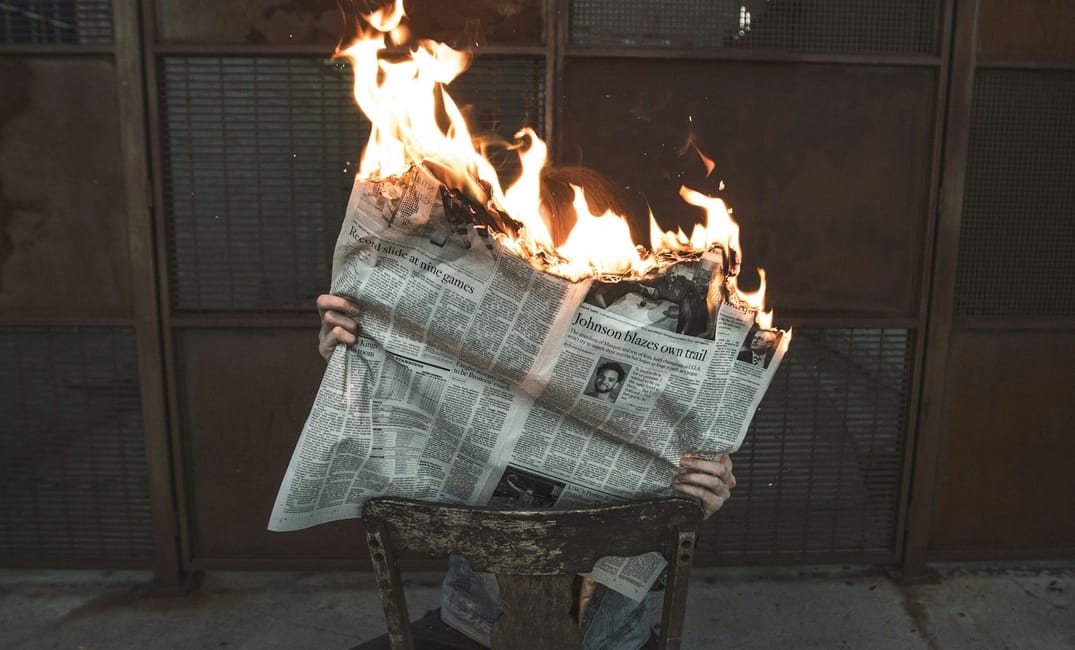Nimi Sira
Democracy is supposed to give ordinary citizens some control over how society is run and who has power. However, how much political control do the people of Britain have if one single person has control over the leading media companies, that influence votes and sculpt public opinion of our leaders?
Rupert Murdoch is the prime example of this, owning and having previously owned a vast variety of news around the world, owning The Sun, The Sunday Times, Sun on Sunday and Sky, as well as having a 17.9% stake in ITV and 39% of BSkyB through News Corps in the UK alone. But why is this such a big deal?
The problem comes from the influence of the party bias of the newspapers and the impact this has on elections. If a newspaper is biased towards the Conservatives, then their readers are likely to be conservative and be prompted to vote that way.
The direct link between the endorsements that the major newspapers choose and the success of the parties is blatantly obvious. For example in 1992, when The Sun changed its stance from a long period of backing the Labour party to backing the Conservative’s John Major in the 1992 elections in the famous ‘It was the Sun wot won it’, reinforcing the view that the newspapers ultimately decided who would be in government.

Some argue that businessmen such as Rupert Murdoch have enjoyed the power to decide who should be in the power of our country, by running vicious campaigns against the opposition of the preferred leader. This means the influence of media tycoons such as the Murdochs within our political system is excessive, as a single move to anger such individuals could bring an end to someone’s political career.
The Sun’s vicious slaying of previous Labour leader Ed Milliband between 2010-2015 is a clear example of the vicious commentary and criticism of Miliband. The headline ‘Save Our Bacon’ and the comical image of Milliband eating a bacon sandwich became a media sensation across Britain, painting him as awkward and embarrassing, and worked to show the lack of control that politicians have over their media image.
The impact of Murdochs on the UK and Australian political system is vast, partly due to the lack of concentrated coverage within the UK (national coverage rather than city-based tabloids) Former Communications Deputy Lance Price wrote for The Guardian, “but at times when I worked at Downing Street, he [Murdoch] seemed like the 24th member of the cabinet. His voice was rarely heard … but his presence was always felt. No big decision could ever be made inside No 10 without taking account of the likely reaction of three men – Gordon Brown, John Prescott and Rupert Murdoch.”
So, how can it be democratic to have an unelected individual working so closely with our Prime Minister’s, when there is no real system in place to hold them accountable for their actions and decisions that they make on behalf of our country?
In Australia, former campaign manager Bruce Hawker wrote that News Corp is “easily the most powerful political force in Australia, bigger than the major parties or the combined weight of the unions … I saw how, daily, the storm of negative stories that emanated from News Corp papers blew our campaign off course.”
And, of course, his power and influence were also showcased in the Phone Hacking Scandal of 2011. It was revealed that the journalists of the newspaper News of the World were hacking the phones of celebrities, politicians and other individuals of interest to the media empire. One of the victims of the hackings was Milly Dower, a missing 13-year-old girl who was found dead in 2002.
The journalists hacked her phone and proceeded to intercept the voicemail messages and delete them from her phone to save space on the device for more messages. Because of this, the friends and family of Milly Dower were given false hope that she could still be alive. This scandal played a significant role in the Leveson Inquiry and even contributed towards the paper’s closure.

The scandal resulted in a huge backlash from the public, highlighting the extent to which journalists of the Murdoch empire were willing to go to uncover a story and broadcast private information of A-listers and victims, as well as fuelling debates over the ethics of the British press.
For many young people and young voters, seeing the major media moguls getting away with clear breaches of privacy, contributes greatly to lack of political participation. The close relationship between those in power and these media tycoons just emphasises the fact that the wealthiest in Westminster are granted a voice and others ignored, making younger voters feel that they cannot trust those in power.
However, there are ways to access more non- biased and ethically sourced news. From newer non-traditional forms of online media news outlets like Vice or Dazed, to young content creators on TikTok and Instagram. Hopefully in future we’ll be turning more to these independent media sources rather than relying on media tycoons.
Thanks for reading our article! We know young people’s opinions matter and really appreciate everyone who reads us.
Give us a follow on Instagram, Twitter and Facebook to stay up to date with what young people think.

